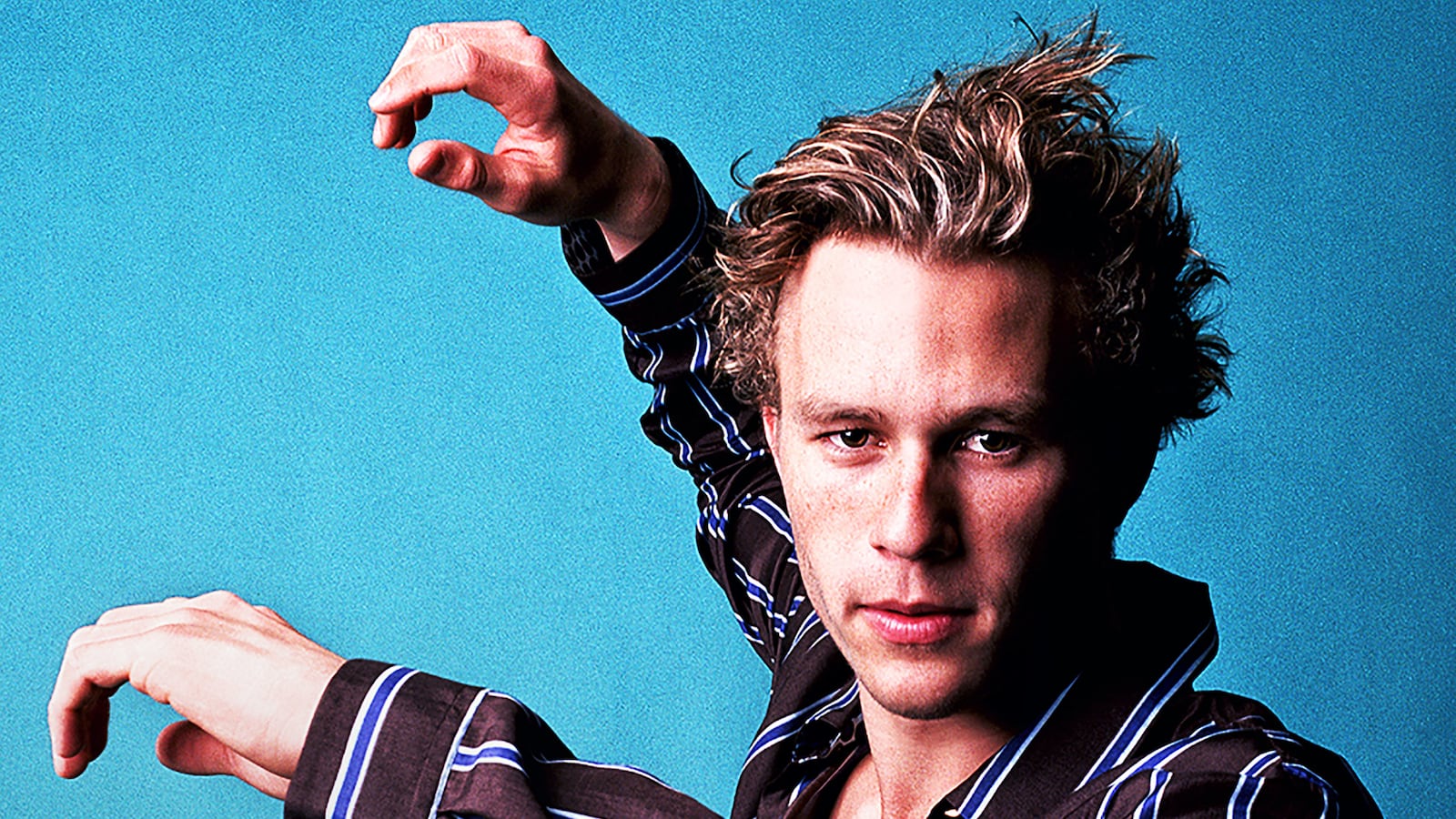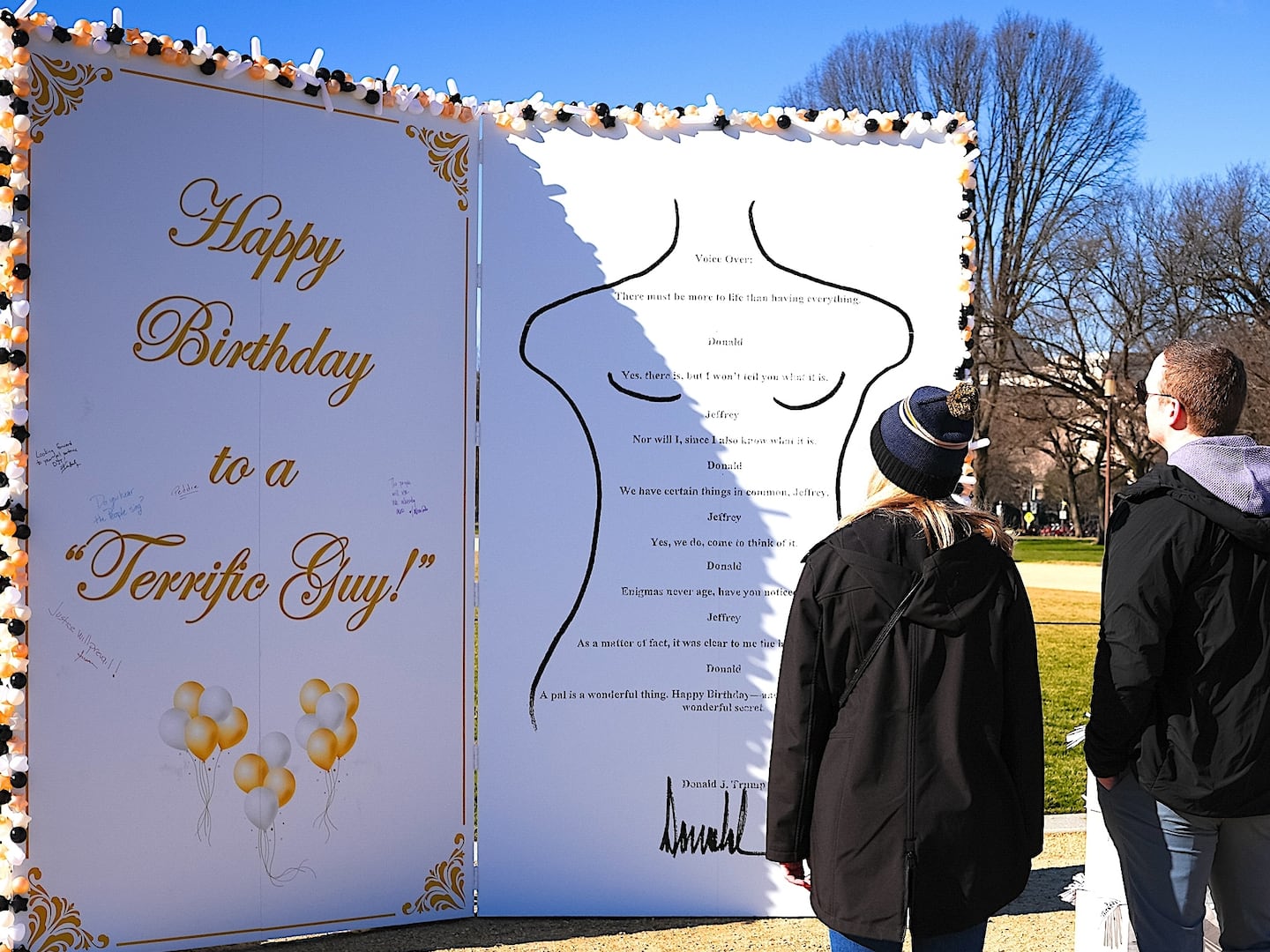As the audience at Sunday’s Tribeca Film Festival premiere of I Am Heath Ledger finished dabbing up their tears, the late actor’s sisters Kate Ledger and Ashleigh Bell took the stage for a rare public interview about losing their brother—and why it’s now, and with this documentary, that they’ve decided to open up about it.
“For us, it was a lot about showing the world what they didn’t know about him,” Bell said, in a panel interview with the film’s directors. “Obviously he was such a prominent actor and everyone knew that side of him already...But we knew the photographer, the father. He was such a filmmaker. He was such a creator of everything. It was really important to us to be able to show…”
“...more than just the celebrity,” Kate Ledger, sitting to Bell’s left, jumped in. “Because he was really not a celebrity. In his eyes, he really wasn’t. We wanted that to come through.”
She pointed out that this isn’t the first time her brother’s life has been given this kind of treatment. “There’s been some pretty average stuff, other documentaries and stuff that I’d never seen, because I never would,” she says. “I think we always knew we wanted to do something, but we wanted to make sure it was done right.”
I Am Heath Ledger, which will have a limited theatrical release on May 3 before premiering in a shorter 60-minute version on Spike May 17, was directed by Derik Murray—prolific in the genre of celebrity bio-docs, with Facing Ali, I Am Bruce Lee, and I Am Chris Farley among his credits—and Adrian Buitenhuis.

The documentary features interviews with co-stars and collaborators including Naomi Watts, Ben Mendelsohn, and Ang Lee, childhood friends, and the entire Ledger family. Michelle Williams, with whom Ledger had a daughter, did not participate, but she gave the project her blessing—something that Kate Ledger said was a major factor in their participation.
But perhaps the biggest selling point of the film is Ledger himself. Much like the Oscar-winning Amy Winehouse documentary Amy, I Am Heath Ledger features scores of footage that Ledger shot himself, often in selfie-mode, narrating major events of his life and capturing himself in intimate, candid moments.
The film opens with this footage, as Ledger mischievously stares into a camera he’s holding himself, saying, “We’re going to go on a mission right now. Will you come with me?”
Nearly everyone interviewed for the film speaks about how the actor was never found without a camera in his hand, foreshadowing what would become a passionate interest in directing near the end of his life and a prodigious talent for photography.
“It’s very true that Heath was the director, or certainly a co-director of this movie,” Murray said at the panel. “His vision goes all the way through.”
There are several recurrent choruses of the film, from Ledger’s surprising talents—he was a chess aficionado and nearly qualified to be Grandmaster—to the idea that he was someone who lived his life constantly on the edge, including the risks he took with his performances and his career.
His playfulness permeates the self-shot footage, with his dimples and scrappy handsomeness constantly on display. There seemed to be a constant tension between swagger and insecurity, with Ledger having the confidence and certitude to know that he would succeed as an actor, but a crippling self-doubt that his agent Steve Alexander says led him to nearly drop out of every film he shot.
Childhood friends beam while remembering his generosity, recounting being carted around the world with him as he shot different films, while fellow Aussie actors Naomi Watts (Ledger’s ex) and Ben Mendelsohn joked about his Los Angeles house, which became a group home of sorts for young countrymen looking for their big break in Hollywood.
“Casting directors would ask you, ‘Are you one of the Aussies living at Heath’s place?’’ Mendelsohn recalls, joking that Adrian Grenier, who he once spotted at a party there, was likely doing research for Entourage by studying the dynamic in the house.
There is incessant marveling at his talent and insistence in taking the road less traveled. Director Catherine Hardwicke gushes about how he filmed Brokeback Mountain seven days after finishing shooting Lords of Dogtown. Ang Lee points out that Ledger actually had the most lines in Brokeback Mountain, making the impression that his character was a man of few words a testament to his brilliant performance.
Alexander notes that earlier in Ledger’s career, after the successes of 10 Things I Hate About You and A Knight’s Tale, Ledger turned down the opportunity to audition for Spider-Man, claiming it wasn’t the direction he wanted to go in. He starred in Monster’s Ball instead.
But tempering the talk of Ledger’s career triumphs are recollections of oppressive insomnia and obsessiveness that seemed to really take a toll on his well-being. Many of those interviewed also recall how seemingly aware of he was of his own mortality, even for a person who was in his twenties and riding the wave of great career.
“It was interesting because I wouldn’t always cue that question,” Buitenhuis said at Sunday’s Tribeca panel, about Ledger’s friends talking about how he would discuss his mortality. “People would always come up and say that.”
To that end, Ledger’s sisters as well as his longtime friend Matt Amato, a filmmaker who, along with producer Sara Cline, co-founded the production company The Masses with Ledger, brought up another reason they were keen to participate in this documentary: to clear up rumors and misconceptions about Ledger’s state of mind after filming The Dark Knight and playing the Joker.
“I hope it’s an antidote to a lot of the gossip that exists in the world,” Amato said on the Tribeca panel. “There are some really terrible things about Heath out there.”
Bell added that, “I don’t know if it was the case that we wanted to clear it up, but as soon as he had the movie everything that came into light about The Joker, we were all so confused.”
“I was really shocked, because that was him having fun,” Kate Ledger said.
“It was coming out that he was depressed and it was taking a toll, and we were going, ‘What?’” Bell said.
“Honestly it was the absolute opposite. He had an amazing sense of humor, and I guess only his close family and friends really knew that. But he was having fun. He wasn’t depressed about The Joker,” Ledger added.
Near the end of the film, Alexander echoes what Ledger’s siblings said on stage Sunday night, saying that, “He was struggling with his demons, but he didn’t want to go anywhere but forward.”
I Am Heath Ledger, which spends a lot of time celebrating the actor’s interest in other forms of art and filmmaking, his adventurous spirit, and love of being a father to his child with Michelle Williams, doesn’t go any deeper into what any of those demons might have been. Nor does it discuss the cause of Ledger’s death, from a prescription drug overdose at age 28.
Perhaps that was a condition of the family’s involvement. And to that end, Kate Ledger told the Tribeca crowd that they were “super proud” of the final product: “We love it. We think it’s amazing.”
“It was kind of a cathartic experience for us, actually, because we, on purpose, haven’t done anything. We’ve had loads of requests, of course, over the years, and we’ve waited until we felt comfortable,” she said about what it was like working on and seeing the film.
“Bittersweet is probably the understatement of the century,” Bell said. “This was always going to be very difficult for us.”






